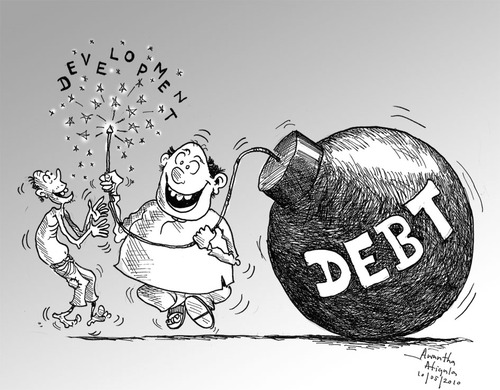Exactly what Japan needs to kickstart
Further to my previous post, it seems like the Japanese Yen is continuing its upward trend against the US Dollar. Many see this as a reaction to the financial volatility in the EU and US, opting to use or conduct transactions in Japanese Yen as they're considered to be safer (although in reality, Japan has a much higher Debt-to-GDP Ratio compared to any country in the world) - and many analysts has describe the sudden rise to be abnormal as the actual exchange rate does not reflect the market price. Further to BOJ's efforts by increasing credit easing scheme by a further 5 million yen, the government hopes to stabilize the price and prevent it from going up further, hurting the south heading export-dependant economy. As seen in the picture below ( taken from http://www.xe.com/ ), the Japanese Yen was stable for much of the year until fears on the American Debt ceiling broke out by July / August 2011.
Despite the additional monetary easing planned by Bank of Japan, I doubt that it would carry much effect since the Yen is the 3rd Largest Traded currency in the world, and adding another 5 Trillion yen to the initial 50 Trillion Yen would not be enough to hold the exchange rate still. As much as the government promotes purchasing overseas companies in US Dollars, the exchange rate remains at a still. I think the major issue would be for the massive panic and loss of confidence with the Dollar and Euro - rather than focusing on credit easing, they should be more focused on buying the Dollar or Euro; but the American government is keen on keeping their currency low in order to promote exports (something they should've done before China's rise).
As much as this has turned out to be a disaster for the Japanese, it could bear some fruit in other ways - particularly in terms of overseas investments and cheap prices of imports (domestic consumption). Personally I've always thought that despite the high standards of living, their level of domestic consumption has not been on par with other advanced countries in the West. The Japanese should also learn to stop being such an export dependant country and view other countries as potential markets (much like how Korea has focused on ASEAN and China focusing in Africa). Their failure to change and adopt to new times (particularly in business) was reflected perfectly in a Korean-based newspaper I found the other day.
So where do we go from here?









